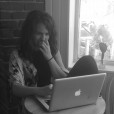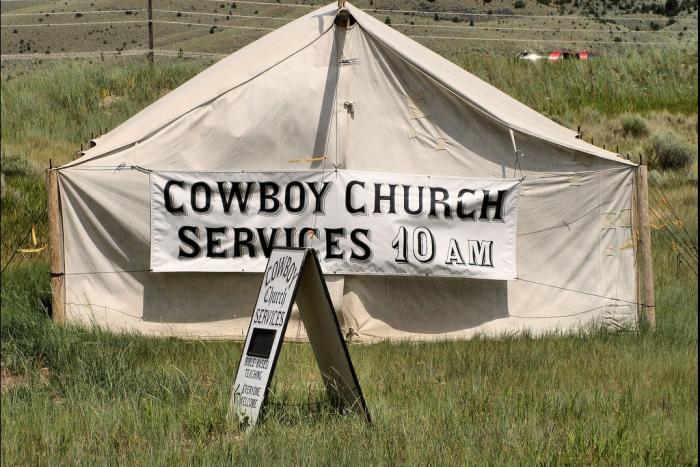John Chipman, a producer for CBC Radio’s As It Happens, spent years researching Dr. Charles Smith’s career. Smith was a star in the paediatric pathology world, the head of paediatric forensic pathology at the Hospital for Sick Children in Toronto for more than twenty years, studying and identifying the myriad ways that children die. It is grisly work. In 2007, an inquiry into his autopsies was ordered and the judge found problems with twenty cases, some of which resulted in parents being convicted for crimes they didn’t commit, having their children seized and given away, and spending more than ten years in prison. There were people who were wrongfully accused, at immense time and personal cost. There were people who maintained their innocence in spite of being accused and convicted. And there are wrongful plea cases, where parents pleaded guilty to lesser charges (child abuse, etc.) to avoid murder charges for crimes against their own children that they did not commit.
Smith’s current whereabouts are unknown—Chipman tried for four years to track him down—but the journalist instead immersed himself fully in his subjects’ lives, tracking the human consequences of such analytical flaws. Chipman spent many nights surrounded by stacks of papers at his kitchen table, punching away on his laptop until 4 a.m. The result is the new book Death in the Family, a dense, detailed examination of four cases mishandled by Smith and the criminal- and family-court systems.
Katherine Laidlaw: How did the book come about?
John Chipman: I’d followed the Smith story as it was unfolding for my work at CBC. I was driving home from work in the fall of 2007, and a man named William Mullins-Johnson was in court. He was charged, convicted and served eleven years in prison for the murder and molestation of his four-year-old niece. And he knew that he didn’t do it, but knew that someone did. He came to believe that if he didn’t do it, given the circumstances of the evening of her death, it would have had to be the child’s father, Paul. These were two really close brothers. Paul initially thought, there’s just no way Bill could have done this. But the weight of the police investigation, all the evidence, all these pathologists, including Charles Smith, who said yes, he molested and murdered this little girl. Ten years later, they come to realize that actually no one did it, that there wasn’t a crime. That story of two brothers turned against each other, it was almost biblical. That’s what really drew me in.
There was one sentence in the book that really stood out to me, about a mother, Louise Reynolds, who’d been charged. By the time the prosecution had dropped the charges, her child was adopted out to new parents and there was nothing she could do. It encapsulated what was at risk so well, reading that was a gut-punch. Because you realize that the implications of what Smith was doing were so far-reaching. He was destroying families, in some cases.
Yeah, that case fell apart because of Smith’s work, and other people’s work in that case was not up to par. In the meantime, she lost a child.
You can’t put your family back together.
No, you can’t. The thing that really struck me about Tammy Marquardt, the wrongful conviction case in the book, is that she went through this whole experience: she spent fourteen years in prison, had to do time with Karla Homolka, she endured piles of misery. Eventually they find out that this shouldn’t have happened to her. They let her out on bail, they set aside the conviction, they say, “We’re sorry, this never should have happened to you.” This is the day that they’re finally going to make things right. She walks out of the courthouse and she doesn’t have her children. So much of Tammy’s life has been about trying to make herself whole again. And that really struck me as well, that notion that the system can fix its mistakes but it can’t fix them completely.
One thing that surprised me when I was reading the book was how imprecise the job of a pathologist can be. I didn’t realize death science was as inexact as it is.
It’s not a science, it’s an art. It’s all opinion.
Are the pathologists that you talked to aware that the chance for mistakes is really high, and that the stakes are also really high?
I think good pathologists qualify their opinions. Smith simply didn’t do that. He overstated. And then would not characterize it as, this is my best guess. He would often characterize it as, this is what happened.
Do you trust these systems after doing all of this research, and watching how some of these parents’ lives have turned out?
I think ultimately the system is only as good as the people in it. You can put in place systems of accountability and oversight to correct against this type of problem, but you’ll never be able to make it perfect, because you’re dealing with individuals who have all kinds of conflicting motivations for what they’re doing. What’s so damning and dangerous about Smith is that I think he stopped acting in good faith. He was lionized for the first three quarters of his career—he was lauded by his peers. He was featured in glowing newspaper articles. He saw himself as the last line of defence for defenceless children. There are lots of caregivers and parents out there who beat and kill their children. We need people who help those kids. But you have to know where the lines are. Smith didn’t understand what his role was, that he was supposed to be objective. He really felt that he was part of the prosecution’s team, building a case against parents.
In the book, Smith is painted as this elusive, on-high, almost god-like character, until you arrive at the end and his backstory is filled in a little bit, which redeems him slightly. His humble beginnings, his medical-school background, his noble intentions, to be a protector of children. And then at the end, he also issues an apology in court. But did he ever offer an explanation? Do you have a sense of what motivated him, toward the end of his career?
I think he would say his motivations were that he was trying to find answers for children who died under suspicious circumstances. And I know he maintains he didn’t do anything intentional, that he wasn’t out to get anyone. If Brenda Wauby [a mother of three, who plead guilty under duress to child abuse in the death of her daughter Jenna but was later cleared] was sitting here, I think she’d have a very different opinion of that. And there are instances in the specific cases, things he did, where you think, that does not sound like someone who does not have a vendetta against this person. If he was sitting here, I’d ask him that same question. But I think he felt like he was doing the best he could. And had good intentions.






